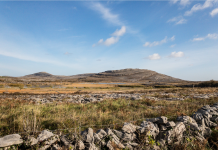Written by: Kimberly White
The United States Environmental Protection Agency (EPA) has announced a new funding initiative to boost environmental justice programs.
The EPA will award $100 million to projects aimed at advancing environmental justice in communities disproportionately impacted by industrial pollution and climate change.
The grants, established through President Biden’s Inflation Reduction Act, mark the largest amount of funding earmarked for environmental justice offered in the history of the EPA.
“I couldn’t be prouder to now be announcing an unprecedented level of funding thanks to President Biden’s Inflation Reduction Act for community-based solutions that support underserved and overburdened communities,” said EPA Administrator Michael S. Regan. “This is a key step that will help build strong partnerships with communities across the country and move us closer to realizing a more just and equitable future for all.”
There are currently two avenues for applying for the newly established funding, the Environmental Justice Collaborative Problem-Solving (EJCPS) Cooperative Agreement Program and the Environmental Justice Government-to-Government (EJG2G) Program.
The Environmental Justice Collaborative Problem-Solving program will provide roughly $30 million in direct grants to community-based non-profit organizations, with $5 million set aside for small community-based non-profit organizations with five or fewer full-time employees. The EJCPS program will grant funding to organizations focused on addressing environmental or public health issues in their communities.
The Environmental Justice Government-to-Government program will provide around $70 million in funding to projects led by states and territories, Tribes, and local governments acting in partnership with community-based organizations. The EPA has said it anticipates funding approximately 70 projects of up to $1 million each for a three-year project.
“To achieve the promise of the IRA and address longstanding impacts of environmental racism, it is critical historically overburdened communities can monitor and participate in the law’s funding opportunities. $100 million in funding is a historic step forward…” said Leslie Fields, Sierra Club National Director of Policy, Advocacy, and Legal.
“By supporting environmental and public health projects created and implemented by community-based organizations, these landmark grants can drive local solutions and spur lasting positive changes,” added Fields.
The EPA will give special consideration to projects working towards addressing climate change or disaster resiliency, benefit rural areas, or conduct health impact assessments that analyze, assess, and quantify environmental, social, and economic externalities.
“I’ve learned over the last two decades of working on environmental justice at the community-level how the proper support and funding can turn good ideas and hard work into something truly impactful,” said Catherine Coleman Flowers, Founding Director of the Center for Rural Enterprise and Environmental Justice. “I’m confident that this historic investment from the EPA and Biden Administration is going to yield some incredible solutions to the crisis of environmental injustice, especially in Rural communities that are under-resourced and overburdened.”
Applications are open now through April 10th. The EPA has stated that those interested in applying for funding should plan for projects to begin in October 2023.
To learn more or apply, please visit the U.S. EPA.
Header Image Credit: U.S. EPA







